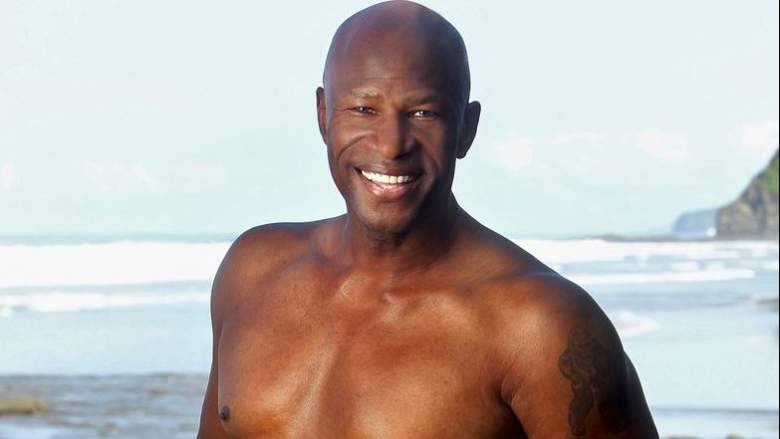
CBS Phillip Sheppard on 'Survivor'
It’s no secret that Survivor is hard. But the way the show impacts its contestants varies widely. One castaway who came away feeling “traumatized” by the show is Phillip Sheppard, who was painted largely as a clownish figure to be laughed at during his time on “Redemption Island” and again, albeit to a lesser extent, on “Caramoan.”
In a recent interview with Entertainment Weekly, Sheppard opened up about how damaged he was by appearing on the show — physically, mentally, and emotionally. Here is what he had to say.
Sheppard Said If He Had Known How ‘Survivor’ Would Have Impacted His Life, He Never Would Have Gone On It
Sheppard told EW that if he had known the full impact the show would have on his life, he would have run the other way.
“If I had known in 2010 that my life would be impacted, how I would be depicted, how it would impact my mental health, my professional and personal opportunities, my relationships, and my own self worth, I would have run as far away as possible,” said Sheppard.
He went on to detail how he could see right from the start of “Redemption Island” that the deck was stacked in favor of Boston Rob Mariano to finally win a season, so he crafted a strategy to work with Mariano to keep the heat off of the Survivor veteran and direct it onto himself. They would draw everyone’s attention to Sheppard, then Mariano would orchestrate a blindside of someone else. That strategy got the two of them to the finals.
But when Sheppard returned home, he said the show was portraying him “as crazy and delusional, and completely ignored the fact that [he] had crafted a brilliant strategy to outlast, outwit, and outplay the other contestants to become a finalist.”
“In retrospect, this was the first overt sign that CBS was creating a racist caricature out of me,” said Sheppard. “They did this for ratings and sensationalism, often partnering with various media partners with the caption ‘Is Phillip crazy?’ … The negative press was global, all one had to do was turn on the TV or read a celebrity magazine — negative depictions were seen on The Soup, E!, Ellen, The View, TV Guide, People, and newspapers. I could not defend or protect myself or my son from this defamation.”
Sheppard said he lost his job because of how he was being portrayed on the show, so he signed on for another season to try to “correct” the narrative about him.
“Imagine how it felt to then see CBS promote me with the tag line ‘the craziest Survivor is returning’ in pre-season promotions. I was again stereotyped as being “‘delusional and polarizing,’ and as a crazy, lazy Black man who had to be dragged to the end by Boston Rob. I was traumatized yet again,” said Sheppard.
Sheppard Said He Was Ultimately Diagnosed With Several Things Stemming From the Show
Upon returning home from “Caramoan,” Sheppard said he was diagnosed with parasites that he got during filming and that coupled with his other mental health struggles led to early retirement for “disability injuries and impairments, PTSD, Severe Anxiety Stress Disorder, and osteoarthritis.”
Since his time on the show, Sheppard said he has “suffered clinical depression and emotional trauma so profound from CBS’s treatment of [him] and their racist and dehumanizing portrayal of [him].”
Sheppard Has a Lot of Regrets
Sheppard regrets buying into the idea that the game is fair.
“I regret believing that I was entering a fair competition that believing that a game cast, produce, marketed, hosted by all white people was somehow going to give me a fair chance and create me with the dignity that had let me to the point of being recruited, as Survivor says they want people to come on who want to win a million dollars. I think they want some people who look more like them to win a million dollars,” said Sheppard.
He also said he will never participate on another reality TV show, “regardless of how many press releases they put out about being inclusive and diverse.”
“I think the format of Survivor, the theme, the game, and many of the staff are well-intentioned. However, what was allowed to happen to Black contestants was devastating in our lives and our stories have not been told,” he concluded.
But one good thing that did come out of his time on the show was that Sheppard was part of the Black Survivor alum alliance that is what spurred CBS to put new casting practices in place.
In a round-table discussion with the alliance members, Sheppard told “Rob Has a Podcast” that he tried to combat this on his own but was ineffective until he had a group of voices to be a part of.
“I’m so glad that Sean [Rector] and Vecepia [Towery Robinson] and Jolanda [Jones] got together and pulled me into this because as you all know, the world got to know me in a way I didn’t know me in terms of the way my edit was done. They made fun of me … I’m really, really proud that we’re now having an opportunity … individually you try to speak to it, and that’s been the most painful part because it’s been my ability to speak and my ability to articulate that allowed me to become a successful executive … but I couldn’t overcome that media machine, that stereotyping that they do. I would just be drowned out over and over again.”
Survivor will most likely not return until fall 2021 with season 41, which should begin filming in April.
READ NEXT: ‘Survivor’ Winner Still Gets Hate Mail From Viewers
Comments
‘Survivor’s’ Phillip Sheppard Opens Up About His Time On the Show